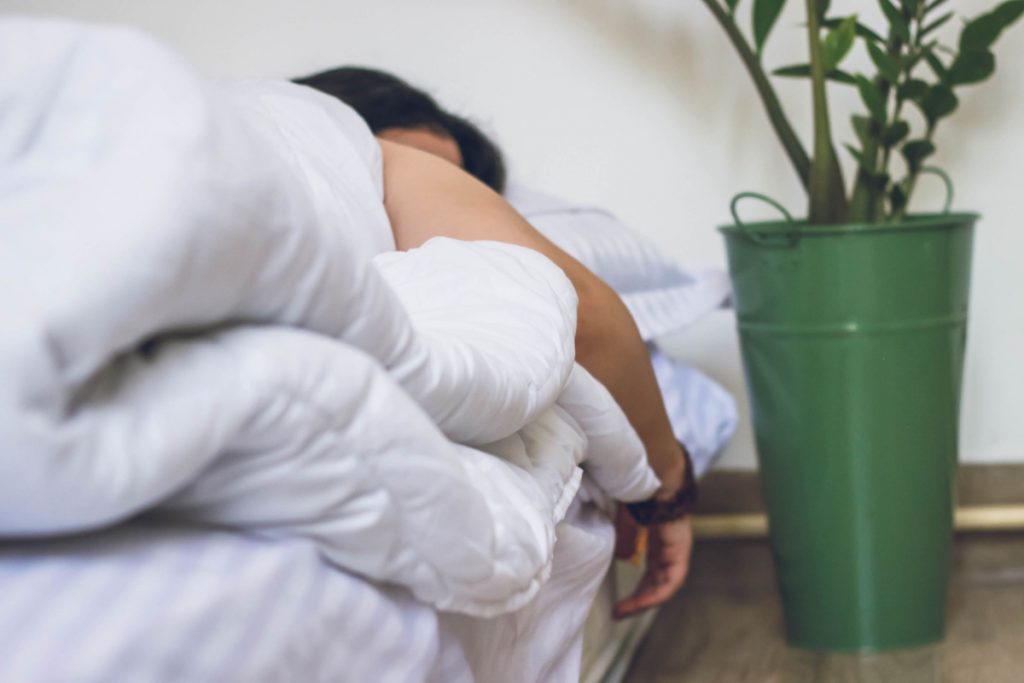
SLEEP – The Secret to a Healthier You
The best preventive and restorative action you can take to boost your productivity, increase your immunity, & improve your quality of life is sleep.
Sleep is one of the most important, yet the most overlooked, key component to your health. In today’s fast paced world, productivity is often prioritized over rest. You may have used the phrase “I’ll sleep when I’m dead” as a justification to stay up late, cramming in the last parts of your daily to do list in the late hours of the night. In the long run, getting adequate sleep and prioritizing your rest can actually help you be more productive, boost your immune system, and support your body’s natural healing processes.
Sleep is crucial to developing a strong immune system. When you get proper shut eye , your immune system is active creating proteins called cytokines. These proteins help fight inflammation in your body and support your immune function. With chronic sleep deprivation comes a decreased immune response and an increased possibility of catching any unwanted viruses.
What is actually happening when you are asleep?

When you are asleep, your body is performing critical processes to the healing and repairing of your cells. It allows your brain and body to slow down and focus the process of recovery, providing you with more physical and mental performance the next day. Chronic sleep deprivation may lead to a variety of challenges including low immunity, low emotional reserves, & memory and focus problems. Chronic sleep deprivation has also been shown to increase the risk of obesity and cardiovascular disease.
There are three hormones that are crucial to adequate sleep: melatonin, progesterone, and testosterone. Melatonin is produced in your pineal gland and is a precursor to sleep. Your body obtains signals from the amount of light that is outside to tell your glands when to start secreting melatonin. Excess evening light exposure can inhibit your natural melatonin production, so it is important to be mindful of your light intake in the evening time. Progesterone is another essential sleep hormone that helps activate the GABA amino acid, which allows your body and mind to relax and sleep soundly through the night. Testosterone helps your neurons synchronize, which is necessary in the process of falling asleep. When there is a decreased production of these hormones, it may contribute to difficulty falling asleep and staying asleep.
What is a Sleep Cycle?
There are 5 stages in your sleep cycle that each have different functions. When you are getting 7-8 hours of sleep each night you will complete about 4-7 sleep cycles. The less sleep you get, the more you miss out on the functions of the sleep cycles. This is what can lead to the challenges that come with chronic sleep deprivation.
Stage 1 and Stage 2 sleep both last for 5-15 minutes and facilitate your entrance from the waking state to the sleep state. Your body temperature will begin to drop, your heart rate will slow down, and you enter non rapid eye movement sleep. Stage 3 and 4 sleep are both 5 to 15 minutes long, and your brain emits slow delta waves and your body can begin to repair itself. Stage 5 sleep is up to one hour long and is when you enter rapid eye movement sleep. Stage 5 occurs when you are dreaming and your brain activity is similar to when you are awake. This sleep cycle repeats 4-7 more times throughout the night. When you don’t get enough sleep, your body isn’t able to run through these cycles multiple times, and you miss out on some key restorative actions when you cut your sleep time down.
Your sleep schedule and patterns help dictate your body’s internal clock, otherwise known as your circadian rhythm. Daylight helps signal to your body that it is time to stay awake, and produces the necessary hormones to do so. This then dictates all of the smaller body clocks you have such as your hypothalamus, lymphatic system, heart, liver, and pancreas. Your sleep schedule dictates your body’s schedule – when you should be digesting foods, producing hormones, and repairing cells. When your sleep schedule is out of balance, so is your body’s natural systems.
Humans have evolved to be awake and working in the daylight, and asleep and resting in the dark. In the past 100 years, humans have had a dramatic change in how you work and rest. You now have the option to stay up later with electricity in your house. Your home computers allow you to work later. Your TV’s allow you to stay up later. With these changes, your body is tricked into thinking the daylight lasts a lot longer than it really does. Your body has not caught up to this evolutionary change in the past 100 years, as human evolution takes thousands of years to occur. The lag in human evolution vs your environmental evolution can cause issues like difficulty falling asleep & staying asleep because you are being exposed to excess light in your homes and have the option to stay working and busy late into the night.
How to Get Better Sleep
Whether you have trouble falling asleep at night, don’t prioritize your sleep, or are looking to improve your quality of sleep, these below tips can be the difference between a good night’s rest and a groggy morning.

- Be mindful of your light intake after sunset
When it gets dark outside, adjust your lighting inside. Dim your lights, or change out your lights to red bulbs. If you need to use screens after dark, wear blue blocking glasses to help offset the impacts of the blue light. This can help support your body’s natural melatonin production.
- Develop an evening pre-sleep routine
It can be challenging to go from a busy evening making dinner and spending time with family to shutting your brain off and getting to sleep. Adding in a small buffer between your daily activities and sleep can help prepare your nervous system for sleeping. Do your best to get off your devices at least 1 hour before sleeping. Choosing a relaxation practice such as stretching, meditating, or deep breathing before sleep can help activate your parasympathetic nervous system. Reading a book in dim (red) lighting instead of scrolling on your device gives your brain a chance to prepare the body for sleep. Developing a routine can help signal to your brain that it is time to rest and relax. Getting in bed at the same time each night (at least weeknights) is also highly recommended.
- Make your room a sleep sanctuary
Creating an environment that is supportive to your sleep can help ensure you stay asleep throughout the night. Ensure that you are sleeping in as dark of a room as possible. Adding in black out curtains, covering any electronic lights with electrical tape, and wearing eye masks can help create a dark environment. Cool your room to 72 degrees or lower if possible. Diffusing essential oils such as cedarwood, lavender, vanilla, jasmine, or geranium can help tune your nervous system. Playing sleep frequency music at 528 hz (https://www.youtube.com/watch?v=DdoxWU3zR4k) can help create a peaceful sleep environment. Choosing non toxic bedding such as organic bed sheets or sheets OEKO-TEX® certified and non toxic mattresses can help reduce your toxic load at night as well.
Sleep is crucial. If you are experiencing issues, contact us, so we can help.









